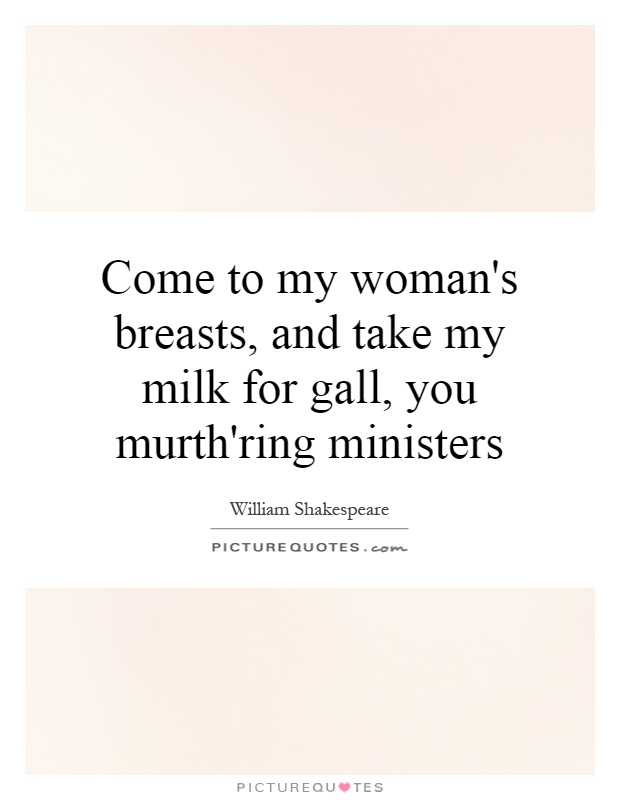Come to my woman's breasts, and take my milk for gall, you murth'ring ministers

Come to my woman's breasts, and take my milk for gall, you murth'ring ministers
The line "Come to my woman's breasts, and take my milk for gall, you murth'ring ministers" is spoken by Lady Macbeth in William Shakespeare's play Macbeth. This powerful and haunting line is uttered by Lady Macbeth as she calls upon evil spirits to strip her of her femininity and fill her with cruelty and ruthlessness in order to carry out the murder of King Duncan.Lady Macbeth's plea to have her milk turned to gall is a metaphor for her desire to rid herself of any compassion or maternal instincts that may hinder her from committing the heinous act of regicide. By invoking the image of her breasts, Lady Macbeth is acknowledging her role as a woman and a mother, but she is willing to sacrifice these aspects of herself in order to achieve power and ambition.
The phrase "murth'ring ministers" refers to the supernatural forces that Lady Macbeth believes will aid her in carrying out the murder of King Duncan. She sees these spirits as her allies in the plot to seize the throne, and she is willing to make a pact with them in order to achieve her goals.
This line is a reflection of Lady Macbeth's ruthless and ambitious nature. She is willing to go to any lengths to achieve her desires, even if it means sacrificing her own humanity. Lady Macbeth's willingness to embrace evil and darkness in order to achieve power is a central theme in the play, and this line serves as a stark reminder of the lengths to which she is willing to go.
Overall, the line "Come to my woman's breasts, and take my milk for gall, you murth'ring ministers" encapsulates the dark and twisted nature of Lady Macbeth's character. It highlights her willingness to sacrifice her femininity and compassion in order to achieve her ambitions, and sets the stage for the tragic events that unfold in the play.












 Friendship Quotes
Friendship Quotes Love Quotes
Love Quotes Life Quotes
Life Quotes Funny Quotes
Funny Quotes Motivational Quotes
Motivational Quotes Inspirational Quotes
Inspirational Quotes